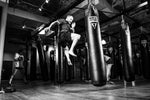
The Importance of Hydration for Martial Artists
, by Sandesh Prasannakumar, 6 min reading time
New Year Sale Is Live - Shop Now!
New Year Sale Is Live - Shop Now!
New Year Sale Is Live - Shop Now!
New Year Sale Is Live - Shop Now!
New Year Sale Is Live - Shop Now!
New Year Sale Is Live - Shop Now!
New Year Sale Is Live - Shop Now!
New Year Sale Is Live - Shop Now!
New Year Sale Is Live - Shop Now!
New Year Sale Is Live - Shop Now!

, by Sandesh Prasannakumar, 6 min reading time
Martial arts contain several categories: punching and kicking, wrestling, pinning, strikes and locks. Martial arts are boxing, karate, judo, jiu-jitsu, taekwondo, muay thai and mixed martial arts.
While techniques and competitive goals may differ across martial arts, they share one critical requirement for success: The two, on the other hand, may include appropriate functioning and proper hydration. Seemingly, water helps to improve techniques, endurance, muscle strength, neural speed and focus levels during practice or games.
Martial arts are physical; therefore, they require energy expenditure by HIIT, isometric hold, plyometric movements, and continual technical repetition. A session dedicated to martial arts can be quite rigorous, and such a rigorous session, if done for 60-90 minutes with a lot of sweating, signifies that the person also burnt about 500-800 calories as much as when he would be running five miles.
The above activities include intensive cardio-vascular exercise, plyometric exercise, weight lifting, and other complex motor tasks during which a lot of sweating is expected. Fighters can be recorded sweating up to 5% of their body weight in water, especially during high-intensity training. It is said that if these losses are not replenished, martial artists can get dehydrated very rapidly. The available literature suggests that a meagre 2% reduction in body water impacts the efficiency of the human body and the brain in exercising muscles, contracting, manifesting body aches, appearing weak and tired, causing nausea and vomiting and may lead to irregular heartbeats. Cardiovascular and muscular strength, endurance, VO2 max, and power outputs decrease. Forty-two per cent reported thermoregulation is affected, thus contributing to cardiovascular stress.
Martial arts place significant mental pressure on individuals. Acquiring systemised patterns and responding rapidly during drills entails problem-solving, attention, spatial coordination, and judgment. When dehydration intensifies, it impairs cognitive abilities, reducing reaction time, focus, and decision-making. Technique and form deteriorate, and memory and information processing decline, affecting mood and wakefulness.
Martial artists struggle to learn, memorise, and apply techniques, plan counter-moves and remain calm and focused. Performance unravels without proper hydration. Fluid replacement is crucial for health, well-being, and recovery after exertion. Adequate water and electrolyte intake before, during, and after training are essential.
Proper hydration begins before training. The American College of Sports Medicine (ACSM) advises consuming 5-10 mL/kg body weight of fluids 2-3 hours before exercising. For example, a 150-pound martial artist should drink 400-800 mL of water.
During extended or rigorous training, fluid losses accumulate. For sessions lasting less than an hour, 7-10 oz of fluid every 10-20 minutes is adequate. For longer sessions, up to 40 oz may be needed.
Post-training hydration replenishes fluid losses. Weighing before and after training helps determine fluid replacement needs. Drinking 0.8-1 litre of water per kilogram lost restores body equilibrium. Adding sodium to fluids helps the body retain water.
Martial arts generally occur in hot or humid conditions, often in gyms with temperatures exceeding 90 degrees. To cope with increased sweat rates, martial artists should follow these tips:
Even a 2% water loss reduces physical and mental performance, which martial arts depend on. Without proper hydration:
Martial artists can avoid these decrements by consistently maintaining a balance of water intake and rehydration before, during, and after training sessions. Superior athletes pay extra attention to adequate water intake every day.
For all your protein and supplement needs, visit Genetic Nutrition!
Q: How much water should a martial artist take before a session? A: Martial artists should consume 5-10 mL per kg of body weight in fluids, such as water and sports drinks, 2-3 hours before training.
Q: What happens if there is inadequate fluid replenishment during a sparring session? A: Inadequate fluid replenishment leads to early fatigue, slow reflexes, reduced mental acuity, high body temperature, decreased muscle strength and stamina, and poor technique.
Q: What signs can a martial artist use to indicate that they are dehydrated? A: Signs of dehydration include increased thirst, dry skin, weak muscles, dizziness, dry mouth, headache, loss of appetite, tiredness, and frequent urination.
Q: Should martial artists avoid any beverages when rehydrating after exercising? A: Martial artists should avoid alcoholic and caffeinated drinks before and on the day of competitions, as they promote body water loss. Soda and juice should also be limited due to their high sugar content.